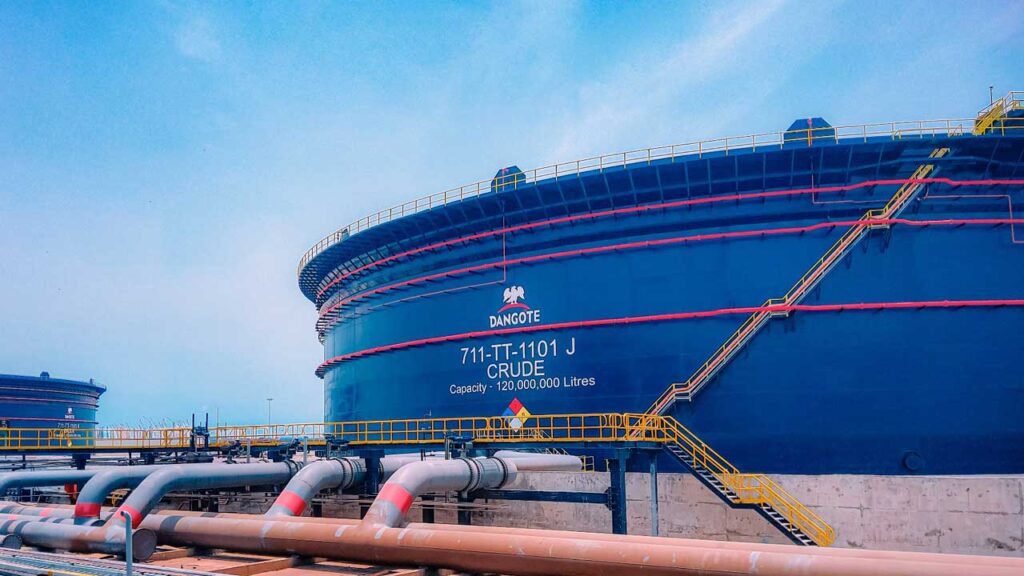Nigeria led West Africa in intra-African trade in 2024, reaching $18.4bn in exports, largely driven by Dangote refinery and fertilizer shipments.
Nigeria Emerges as West Africa’s Trade Leader
Nigeria has claimed the top spot in West Africa for intra-African trade, recording $18.4 billion in exports to other African countries in 2024, according to the African Export-Import Bank (Afreximbank). The surge was significantly driven by petroleum products and fertilizer shipments, particularly from the newly operational Dangote Refinery.
Afreximbank’s 2025 African Trade Report revealed that Nigeria contributed 25.2% of total intra-African trade within the West African sub-region. The data reflects the early impact of the African Continental Free Trade Area (AfCFTA), which aims to increase trade between African countries by removing tariffs and other trade barriers.
The Dangote Effect
The reported stated, “In West Africa, Nigeria emerged as the region’s largest intra-African trading country, as trade with the rest of Africa expanded to reach approximately $18.4 billion in 2024, up from just $8.1 billion in 2023. Crude oil remained Nigeria’s primary export to African markets, but there was growing momentum toward refined product exports following the operational launch of the Dangote Refinery.
Africa’s largest refinery, with a processing capacity of 650,000 barrels per day, the Dangote Refinery has started delivering petroleum products directly to Cameroon and other nearby markets. This marks a shift away from reliance on intermediaries and is poised to strengthen regional energy integration.
This capability has not only reduced Nigeria’s dependency on imported petroleum products but has also positioned it as a major supplier to other African countries. The refinery’s integration into continental supply chains reflects a broader shift toward value-added industrial production across Africa.
The Big Five
The report noted that while several smaller economies recorded strong export growth, Africa’s five largest economies, namely Algeria, Angola, Egypt, Nigeria, and South Africa, contributed significantly to the increase in the region’s exports.
The report stated, “These countries accounted for more than 56.6 per cent of the continent’s total exports in 2024. The exceptional growth in the exports of leading oil-producing countries, namely Angola 130.3 per cent and Nigeria 113 per cent, was a major driver of the continent’s impressive export performance during the review period.”
Merchandise and Oil
The report highlighted the strength of merchandise imports, saying, “Africa’s total merchandise imports also exhibited strong performance in 2024, with its growth accelerating to about 7.6 percent to $769 billion, from $714.7 billion in 2023. High import bills, driven largely by still elevated prices of food and energy, coupled with a strong US dollar, impacted African trade.”
Finally, the report stated, “Oil exporters saw their imports grow by a combined 16.1 percent to $178.6 billion, up from $153.8 billion in 2023. Nigeria 37.6 percent, Africa’s largest economy and leading oil exporter, and Algeria 6.1 per cent, one of the continent’s major economies and most important oil exporters, drove this growth. Other exporters, such as Chad 22.4 per cent and Libya 0.4 per cent, contributed to the import performance of oil exporters during the year.”
Looking Ahead: Regional Integration and Growth
The report also highlighted the ongoing need for improved infrastructure, trade facilitation, and industrial policy to fully realize AfCFTA’s potential. As Nigeria’s trade surges, the country may serve as a case study in leveraging industrial-scale projects like the Dangote Refinery to stimulate cross-border trade and economic diversification.
For more stories of African trade, visit our dedicated archives.
